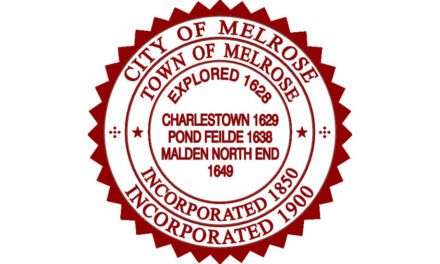The scary science behind lunch meats, more
Published in the April 27, 2018 edition
The following is the first in a series of articles leading up to the city’s annual Healthy Melrose fair on Saturday, May 12, from 10 a.m. to 1:30 p.m.
By MEREDITH SOFTIC
BSN, RN
Whole Health Educator
Life is busy. Many Americans stock their fridges with lunch meats, bacon, hot dogs, and other prepared foods, or swing by their favorite sandwich shop to grab an on-the-go meal to save time throughout the day. Unfortunately, there could be a big price to pay for convenience. These foods often contain added preservatives known as nitrates and nitrites, which may not be so safe for human consumption.
What/where they are
Nitrates and Nitrites are added to foods such as deli meats, cured meats, bacon, salami, sausage, hot dogs and more to enhance color, prolong shelf life, and prevent bad bacteria growth. You’ll often see them listed as potassium or sodium nitrates/nitrites. They can also be added to pharmaceutical drugs, and are found in fertilizers.
What’s so bad about them?
When humans consume these added nitrates/nitrites they form nitrosamines in the body. Nitrosamines cause tumors in laboratory animals, and have been linked to cancer in humans. Studies have linked nitrites to stomach cancer, and some data suggests there may be a link between esophageal, brain, and thyroid cancers as well.
In 2010, the World Health Organization’s International Agency for Research on Cancer declared ingested nitrites and nitrates to be probable human carcinogens.
A study conducted by the Cancer Research Center of Hawaii and USC which followed 190,000 people, ages 45-75, for seven years, found that people who ate the most processed meats had a 67% higher risk of pancreatic cancer.
Nitrates are often found in drinking water, both public and well water.
Excess nitrate/nitrite consumption through water can cause “Blue Baby Syndrome,” or Methemoglobinemia, which decreases the body’s ability to transport oxygen via hemoglobin, and can lead to death. This is more often seen when infant formula is mixed with contaminated water.
Some studies also suggest that consumption by pregnant women can be linked to birth defects.
Nitrates/nitrites naturally occur in vegetables such as celery, lettuce, and spinach, and some fruits. However, these foods also contain Vitamin C and other compounds which inhibit the conversion to nitrosamines in the body, and can actually reduce your risk of cancer.
Reduce your risk
• Decrease consumption of processed foods and cured meat products.
• Look for brands that have no added nitrate/nitrites such as Applegate Farms.
• Check Labels Carefully-Sodium/potassium nitrate/nitrites can be found hidden in canned beans, vegetables with bacon, and packaged seafoods.
• Get a water report from your town.
• Filter water with a reverse osmosis filter, or an ion exchange filter. EWG.org has a great resource for buying the right water filter based on what’s in your water.
• Buy Organic (Not allowed in organic foods)
• Eat a diet high in antioxidants to help rid the body of excess chemicals and help reduce the conversion of nitrites to nitrosamines.
For more information regarding food additives, check out EWG’s Dirty Dozen Guide to Food Additives.
Interested in learning more about how you can reduce your toxic load and risk of disease? Come to Healthy Melrose on Saturday, May 12, from 10 a.m. to 1:30 p.m. The fair will include fitness activities, over 50 vendors, organic, non-GMO food and food samples.
Meredith Softic is an RN and Whole Health Educator who takes a “whole person” approach towards disease prevention and health promotion. Meredith works as a Cardiac Nurse at Hallmark Health and is the Whole Health Director at fit life.




